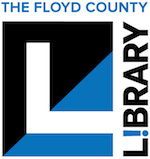 Happy 458th Birthday to William Shakespeare, playwright, actor, and poet! Shakespeare wrote 154 multi-layered poems about things like beauty, love, and mortality, considered to be the best of all time in the English language. He also wrote at least 37 plays–comedies, histories, and tragedies–with complex stories that explore basic human experiences that we all understand, like love, jealousy, death, and revenge. Perhaps the grandest of all of Shakespeare’s tragedies is that he somehow managed to die on his birthday, April 23rd. This is Shakespeare Day.
Happy 458th Birthday to William Shakespeare, playwright, actor, and poet! Shakespeare wrote 154 multi-layered poems about things like beauty, love, and mortality, considered to be the best of all time in the English language. He also wrote at least 37 plays–comedies, histories, and tragedies–with complex stories that explore basic human experiences that we all understand, like love, jealousy, death, and revenge. Perhaps the grandest of all of Shakespeare’s tragedies is that he somehow managed to die on his birthday, April 23rd. This is Shakespeare Day.
Recently, the Library has welcomed Kentucky Shakespeare for several engaging youth programs and workshops. Kentucky Shakespeare has been an excellent community partner, and we enjoy having its actors here to educate and entertain us all. Even those with no prior Shakespeare knowledge pick up on the nuances of Shakespeare’s work quickly through the actors’ interpretations. We have so much fun, and everyone leaves with a greater understanding of Shakespeare’s work.
Register for upcoming youth programming with Kentucky Shakespeare:
Renaissance Dance on April 30th
Living History: We The People on July 9th
Shakespeare’s language, while tricky, makes more sense when we learn some simple translations. Here are a couple examples: Why is everybody someone’s cousin in the plays? Cousin actually means friend. Marry can refer to marriage, but it can also mean Indeed!, or a type of curse word (known as a minced oath) referring to Mary, the mother of Jesus; these latter meanings are obsolete.
But, what makes Shakespeare’s language still so relatable is perhaps his greatest comedy! William Shakespeare invented or popularized more than 1,700 words and phrases that we still use in our everyday language: words like aerial, baseless, critical, frugal, gloomy, gnarled, monumental, premeditated, and sanctimonious; and phrases like ‘vanish into thin air’ (Othello & The Tempest), ‘green-eyed monster’ (Othello), ‘there’s a method to my madness’ (Hamlet), ‘break the ice’ (Taming of the Shrew), ‘one fell swoop’ (Macbeth), and ‘a heart of gold’ (Henry V). Shakespeare is responsible for so many of today’s clichés, it’s almost laughable! He gets credit for that one, too.
For more fun with Shakespeare’s English, check out TalkLikeShakespeare.org, increase your understanding by logging in to Mango Languages and search English (Shakespearean), or try your skills at translating something into Shakespearean English! Take this version of the Hokey-Pokey, written in 2003 by Jeff Brechlin for a contest by the Washington Post. The version is now so famous that it’s performed at Shakespeare festivals:
The Hokey Pokey, by Jeff Brechlin
O proud left foot, that ventures quick within
Then soon upon a backward journey lithe.
Anon, once more the gesture, then begin:
Command sinistral pedestal to writhe.
Commence thou then the fervid Hokey-Poke,
A mad gyration, hips in wanton swirl.
To spin! A wilde release from Heaven’s yoke.
Blessed dervish! Surely canst go, girl.
The Hoke, the Poke — banish now thy doubt
Verily, I say, ’tis what it’s all about.
Haveth ye a Happy Shakespeare Day!
